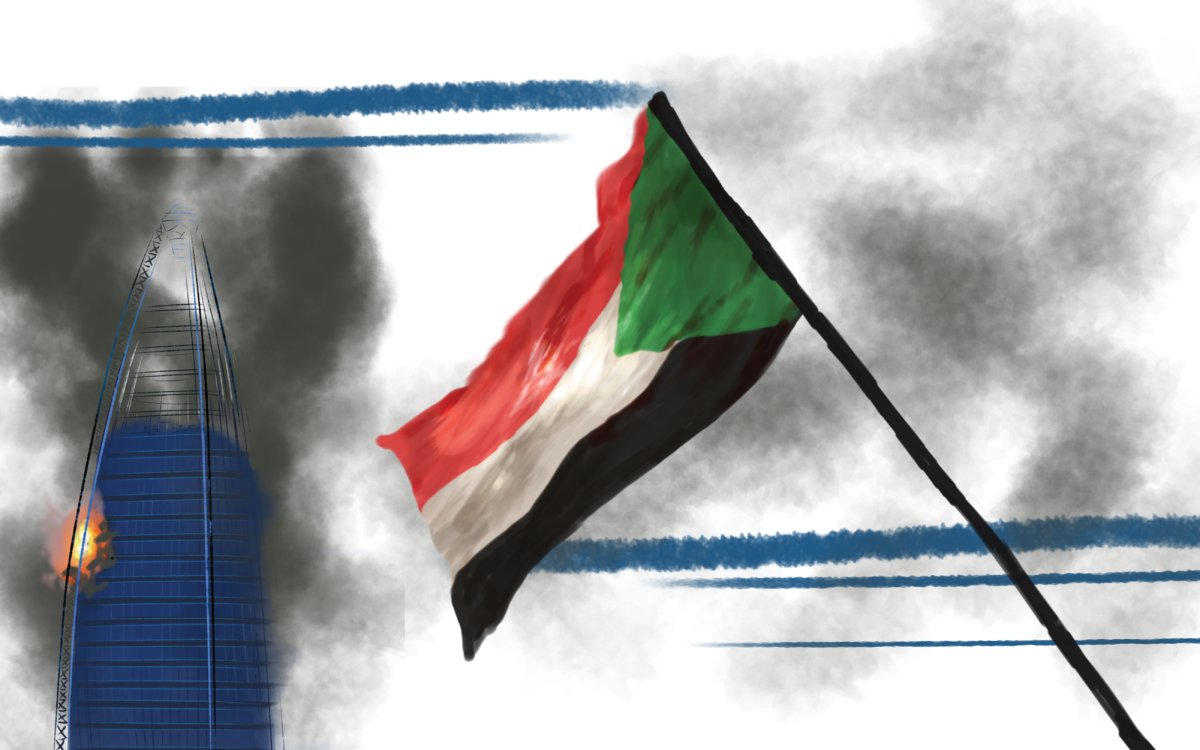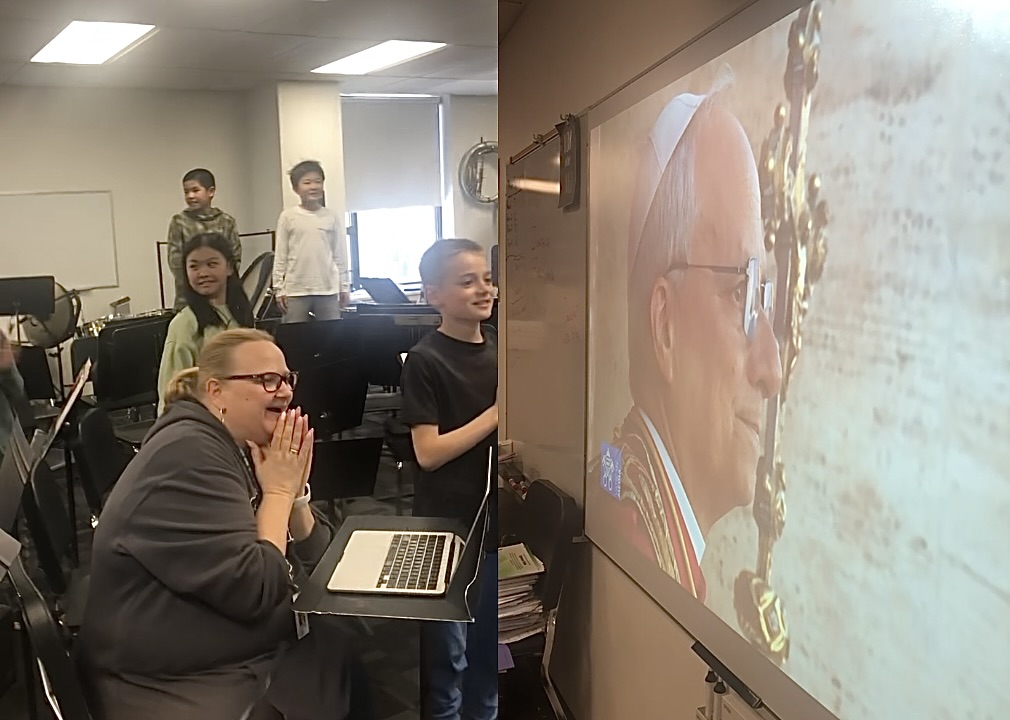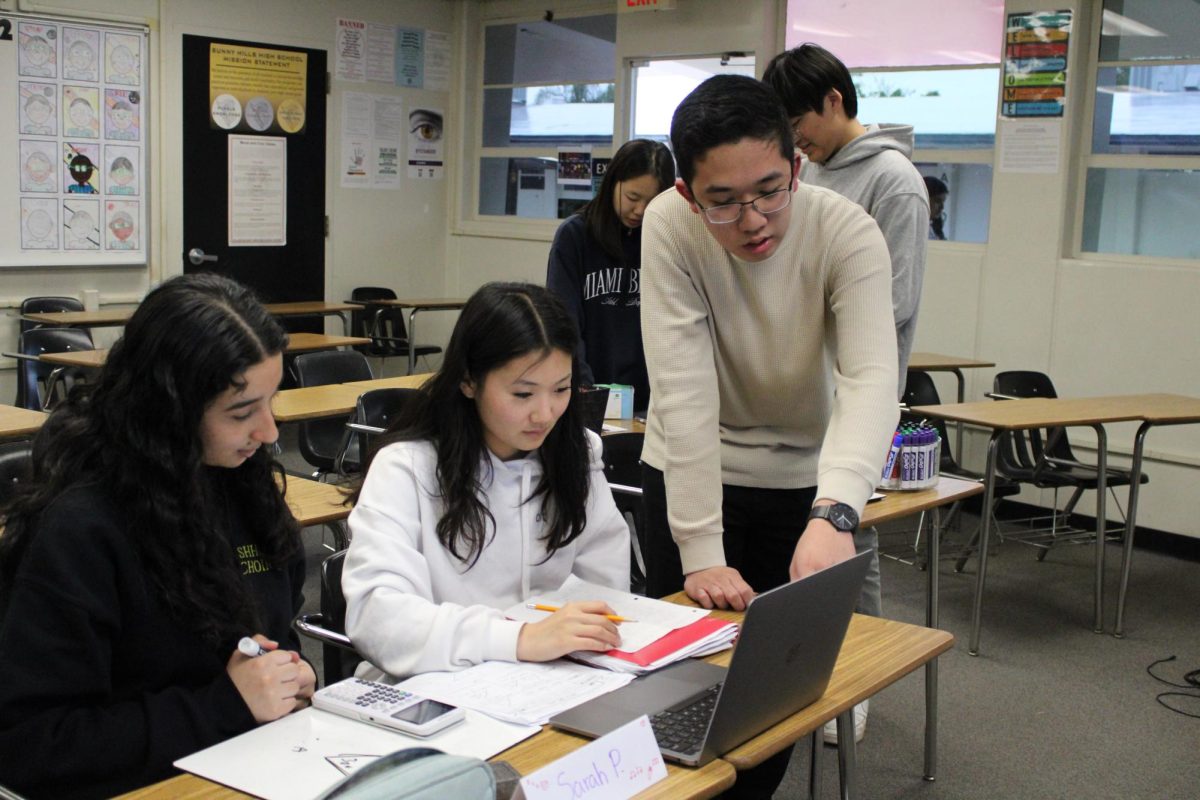Television screens flick through various channels, each showcasing unique turmoil— climate change, deforestation and the Russo-Ukrainian war. However, one topic isn’t receiving the same extent of coverage, instead dismissed as an everyday African normality: the Sudanese Civil War. The crisis erupted during Ramadan, on the morning of April 15, with exchanges of military violence between the Sudanese Armed Forces (SAF) and the paramilitary, the Janjaweed Rapid Support Forces (RSF). The opposing groups have participated in political disagreements since overthrowing war criminal and former Head of State Omar al-Bashir in the 2019 coup d’état. Without a proper hierarchy of authority, the Republic of Sudan gradually fell victim to a power struggle between the SAF and the RSF. While the ongoing war is a military-based fight, the Sudanese people remain at the heart of the crisis.
According to The United Nations Office for the Coordination of Humanitarian Affairs (OCHA), as of Sept. 5, around 5.1 million individuals in Sudan were internally displaced, and over one million fled to neighboring countries. Christopher Tounsel, the Director of African Studies and an Associate Professor of History at the University of Washington, specializing in Sudanese history, emphasizes that civilians are the primary group of individuals devastated by the crisis.
“It is the people who are suffering and it is the people whose homes have been destroyed, women who have been assaulted, water supplies and power plants that have been destroyed and families broken,” Tounsel said.
For the Sudanese community at West, the unexpected clashes have led to the loss and displacement of loved ones. Bashir Eltyeb ’25 recognizes the difficulties that come with the crisis.
“When I first heard about the war, my aunts and uncles were living [in Sudan]. My grandma died during the war [because of her health], and I’ve had some rough times,” Eltyeb said. “Compared to other Sudanese people, I’m thankful because I’m not in Sudan. There are so many people that are struggling right now, and I wish I could help them.”
While he isn’t directly affected by the conflict, Eltyeb finds it challenging to be reminded of the dire situation his loved ones are facing.
“Knowing that my friends are not safe is always kind of scary to me,” Eltyeb said. “I’ve shared birthdays with these people. I went out with them, and I saw them at school—and right now, I could just wake up and get a text that they’re dead, and it’s scary.”
Despite the hardships, Eltyeb has started thinking of the war from a different perspective.
“The war helped me connect more with reality,” Eltyeb said. “I had a moment of emotional resilience, where I’m trying to understand why this war is happening and what we can really do about it. You have to understand that people are being affected by [the war] and that you have a duty to your country.”
Eman Mohamed, a West High parent, recounts how she felt when she first heard of the war.
“I was shocked and numb,” E. Mohamed said. “I didn’t know what to do because my family was isolated in the middle of the violence. I broke down and just started crying from the shock.”
Due to continuous difficulties with communication, the U.S. receives updates of the war after a prolonged period of time. As a result, E. Mohamed discovered her nephew was included in the first death count after his funeral.
“My nephew was one of the first people killed during the beginning hours of the shootings,” E. Mohamed said. “He was taking his final exam at the university, and he was going to his car when suddenly, he heard gunshots and was on the ground. He was shot in his kidney, and no one could help him for days.”
Along with familial losses, the conflict has deteriorated Sudan’s already faltering education system. While schools have been repurposed as shelters for displaced individuals, the lack of supplies has immobilized the education they once provided. For Rawan Babiker ’25, this means her cousins don’t have the materials to continue their studies.
“It was testing season [before the war], and my cousins weren’t able to test. They couldn’t even go to the schools they had planned,” Babiker said. “They now have to go to other cities and see if colleges are gonna take them. Some of [my cousins] weren’t even able to graduate.”
In addition, the conflict is exacerbated by the destruction of the Sudanese healthcare system. According to OCHA, around 80% of hospitals and pharmaceutical storages are out of service, and civilians are dying due to the lack of medical resources. The primary assassination targets of the RSF are healthcare providers, severely hindering the productivity of hospitals. As a result, Babiker experienced the loss of her cousin.
“[My cousin] didn’t die because somebody shot him. He got really sick and tired, and he went to the hospital. But because of the war, there were no resources to help him,” Babiker said. “There was no oxygen in the hospital and that’s why he passed. There were no IVs and no doctors to help him.”
Hopes of returning to Sudan have slowly dwindled amongst the Sudanese. The RSF continues to post pictures of their exploits on social media, such as the sexual violence of young women and the destruction of citizen properties. E. Mohamed recognizes that the war connects to an overall humanitarian abuse crisis.
“There are corpses on the streets, and no one can bury them because they would get shot by the Janjaweed, the paramilitary,” E. Mohamed said. “Dogs and cats are starving because there’s no one to feed them, so they’re eating the bodies scattered around. Some of the people that are dead are floating in the Nile River, and my cousin can smell rotting bodies around his house.”
Although the return of Sudanese refugees might be delayed, several organizations in the U.S. are raising money to aid those devastated by the war or those forced to flee their homes, such as the Sudanese American Physicians Association (SAPA). SAPA is a non-profit, humanitarian membership-based organization for medical professionals, and they are committed to ensuring that Sudanese refugees have access to prompt healthcare needs. Khidir Dalouk, a SAPA executive board member and the Director of Advocacy, explains how SAPA strives to reach its goals.
“We’re working on different strategies to boost the public health sector during this very difficult time, [such as] by supporting and funding different hospitals across Sudan. We are launching new facilities to help alleviate the pressure on different hospitals,” Dalouk said. “We have a team who is dedicated towards internally displaced persons. We’re ensuring their housing, food security and health [is taken care of].”
As the RSF continues to fight the Sudanese Armed Forces, some wonder how an internationally condemned group can gain such influence to rival a national army. Tounsel explains that a majority of the paramilitary’s power stems from Russian support.
“One of the reasons why this conflict is so international in scope is because the Russian government has been extracting gold from Sudan,” Tounsel said. “Russia has partially used Sudanese gold to shield itself from the harshest impact of Western sanctions. Sudan also has a very long coastline with the Red Sea, which is one of the world’s most active trade waterways. Russia is very much invested in having a naval base, either at Port Sudan or elsewhere along the Sudanese coast, so that it can influence the flow of energy resources into continental Europe.”
With Sudan’s history of coups, some expected the crisis to resolve after a few weeks. However, global powers’ interference with obstacle-free resource extraction has escalated the war. Mohamed Mohamed, a paraeducator at West High, believes that external countries aligning themselves with one of the two fighting groups has only made matters worse for the civilians.
“A majority of the world is neutral, and some are siding with the RSF either because the militia has investments in their country or for resources,” Mohamed said. “The countries siding with the militia don’t make sense to me because they have their own land, their own people, their own resources, so I always wonder, ‘Why are they trying to take what’s ours?’ It’s upsetting because most of the RSF are not even Sudanese, and they are trying to take over our country with the support of others.”
Due to the Sudanese government’s control of the media and termination of free speech, the RSF can easily manipulate information that reaches citizens. Tounsel believes that propaganda is the reason Mohamed Hamdan Dagalo (Hemedti), the current general of the RSF, has solidified his authority.
“One way that Hemedti has maintained power over the Rapid Support Forces is branding himself [as] a man of the people, someone who can say, ‘Look, the central government has ignored you for so long, has treated you so badly. But I am one of you. You can trust me,’” Tounsel said. “Because of that, the Rapid Support Forces now have control over a lot of Western Sudan.”
Donations have poured in from sympathetic Sudanese citizens and Muslim communities around the U.S. However, Dalouk believes the world’s weak response to Sudan’s conflict is affected by prejudice.
“Apples and oranges are not equal,” Dalouk said. “We’re not getting the same media attention. We’re not getting the same attention that the Biden administration is giving, for example, to Ukraine. So we’re not very happy with the way the world is standing up for this war.”
E. Mohamed also views the static world response as disappointing.
“Everything is in mayhem, and if we had an ounce of positive standing from the world, we wouldn’t have been in such a critical situation,” E. Mohamed said. “I can’t help but compare [the world’s] response to a European country in danger versus an African country in danger.”
Though international assistance is faltering, Babiker and Eltyeb hope to create an encouraging community within West by reviving the Sudanese Student Organization (SSO). Eltyeb believes connecting with individuals of a similar cultural identity creates an intertwined support system.
“The fact that you know there are other Sudanese people around you [helps] you maintain the identity you have. You’re not alienated here,” Eltyeb said. “It’s a lot more comforting to be here in the presence of other Sudanese people because you know [they had] similar experiences and have been affected by the war too.”
This story was originally published on West Side Story on October 11, 2023.






































